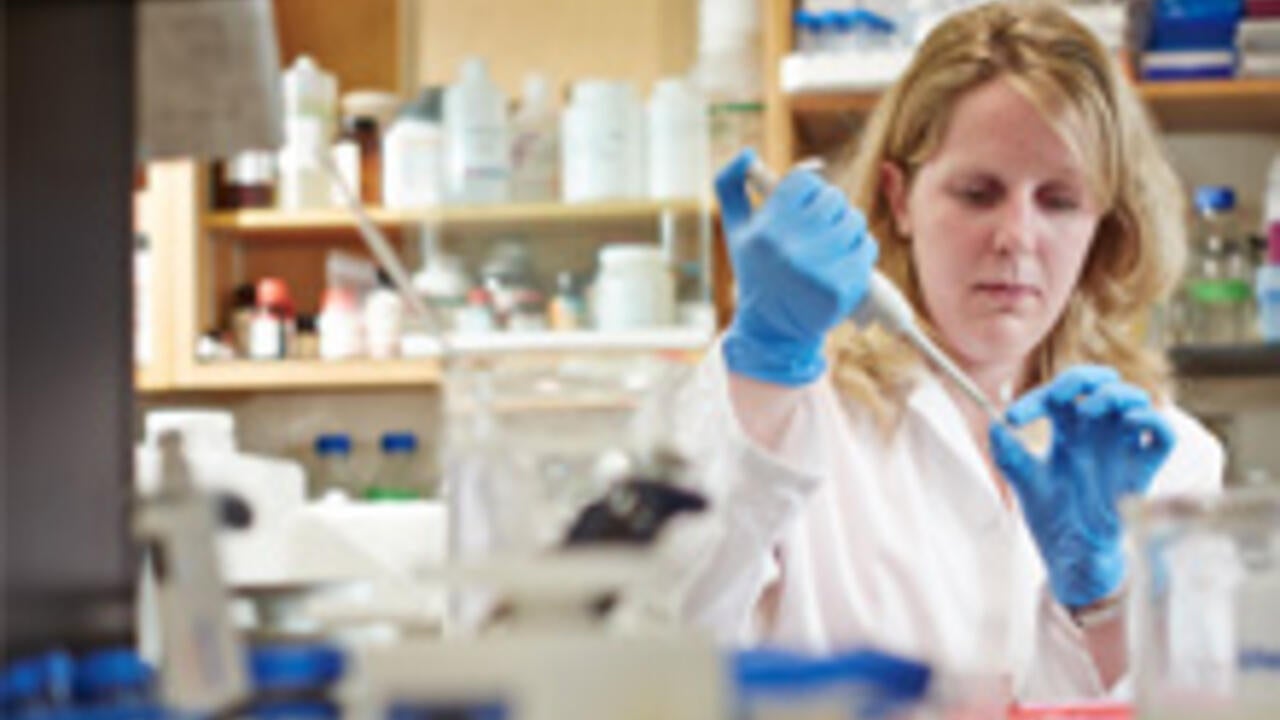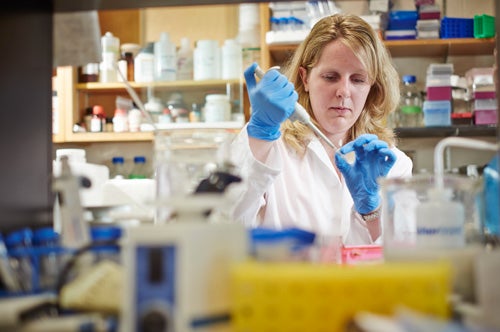
Women’s health: The link between estrogen and fat
From pregnancy to post-menopause: Waterloo research examines the upside of fat in our diets at every stage of a woman’s life

From pregnancy to post-menopause: Waterloo research examines the upside of fat in our diets at every stage of a woman’s life
By Heather Bean Marketing and Strategic CommunicationsKristin Marks, a researcher who looks into ways that estrogen affects different fats, has become an advocate for the misunderstood molecule that has been vilified for North America’s growing obesity crisis.
“I’ve always been interested in eating well and living a healthy lifestyle, and the more I learned about what fat does, the more interested I became,” says Marks, a doctoral candidate in Waterloo’s Department of Kinesiology. “So many people think fat is bad in general. But fat is so important to so many different functions in our bodies.”
Marks, who has been awarded a 2014 Women’s Health Scholars Award from the Council of Ontario Universities, researches the ways estrogen affects the synthesis of different fats. The results of her study will have wide-ranging implications for women’s health. The $20,000 award, funded by the Ontario Ministry of Health and Long-Term Care, recognizes outstanding research in women’s health issues.

Kristin Marks extracts DNA from cells to probe for estrogen response elements in her lab at the University of Waterloo.
In cells, estrogen binds to a receptor that then binds directly to DNA and affects gene expression, including the way a cell produces the enzymes that make fatty acids. Marks has discovered that estrogen influences enzymes that increase the length of and the amount of unsaturation in saturated, monounsaturated and polyunsaturated fatty acid in the body.
Marks is the first person to identify a clear link between estrogen and an enzyme called elongase 6. In the body, elongase 6 converts a fatty acid linked to cardiovascular disease and obesity to a healthier saturated fatty acid. These elongation reactions also affect other fatty acids, including omega-3 fatty acids such as DHA, which affects everything from reproductive health and fetal development to disease resistance.
The results of her work will help improve the design of clinical trials, and will also provide a foundation for dietary guidelines that account for women’s different needs during the premenopausal, pregnant, and postmenopausal phases of their lives.
Marks grew up in Brantford, Ont. and earned her BSc and MSc from the University of Waterloo. Now she works with associate professor Ken Stark, the Canada Research Chair in Nutritional Lipidomics, and assistant professor Robin Duncan, both in the Department of Kinesiology.
Marks is one of six recipients of the Women’s Health Scholars Award across the province, and one of three PhD candidates to receive the prize this year. The prize is part of a push from the health research and medical communities to include women’s health issues in scientific studies.
“I'm excited to see where all this work goes,” says Marks. “Hopefully it will be relevant to women of all ages. That’s why I’m especially thankful to have received this award.”

Read more
The Government of Canada announces funding to support research in food policies and medical devices

Read more
Here are the people and events behind some of this year’s most compelling Waterloo stories

Read more
Meet five exceptional Waterloo graduate students crossing the convocation stage as Class of 2025 valedictorians
The University of Waterloo acknowledges that much of our work takes place on the traditional territory of the Neutral, Anishinaabeg, and Haudenosaunee peoples. Our main campus is situated on the Haldimand Tract, the land granted to the Six Nations that includes six miles on each side of the Grand River. Our active work toward reconciliation takes place across our campuses through research, learning, teaching, and community building, and is co-ordinated within the Office of Indigenous Relations.